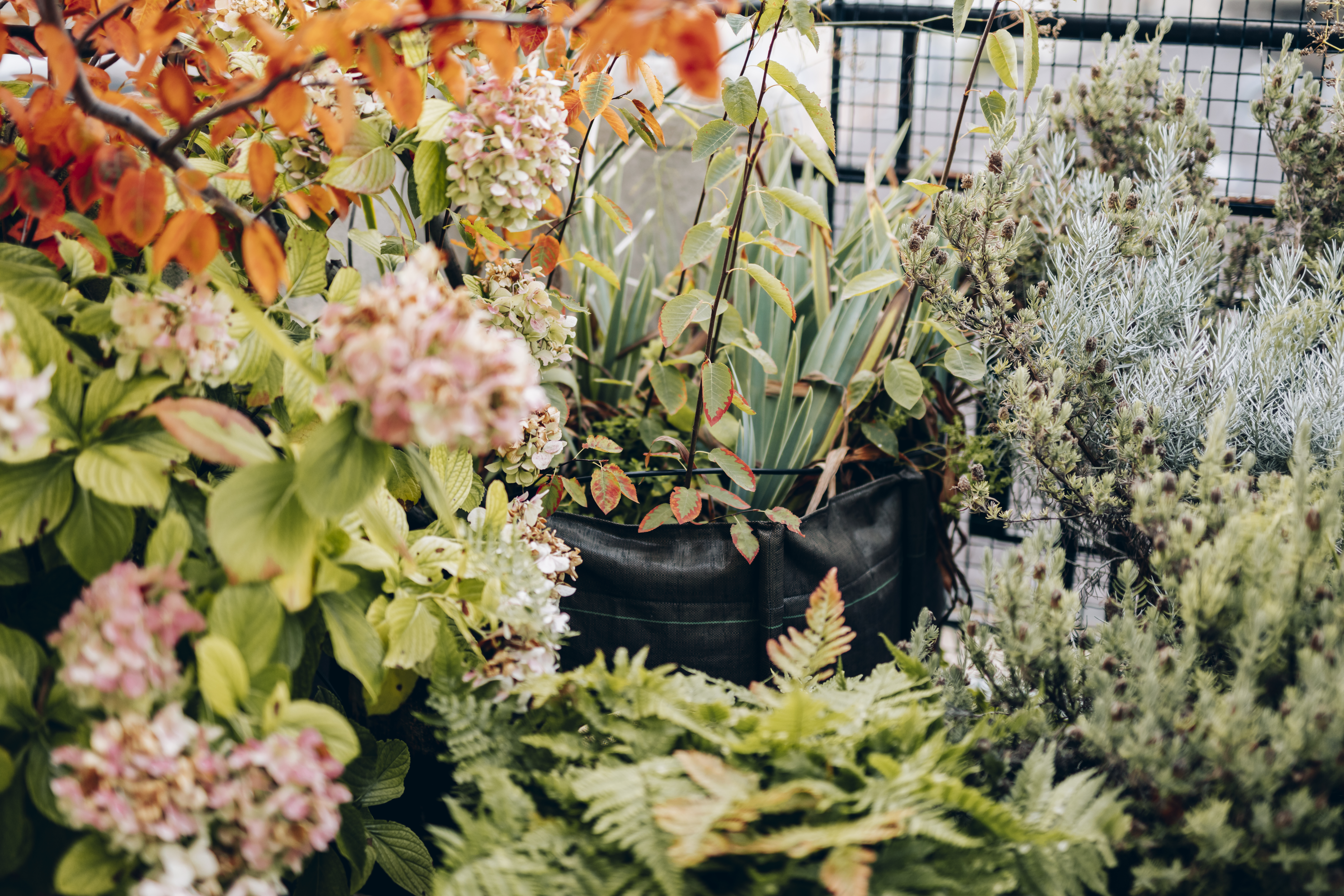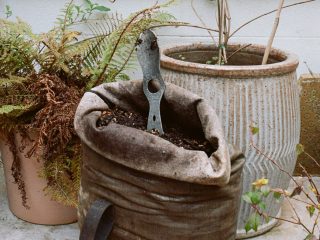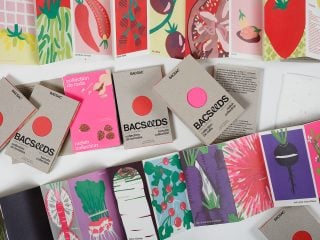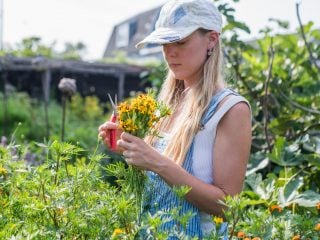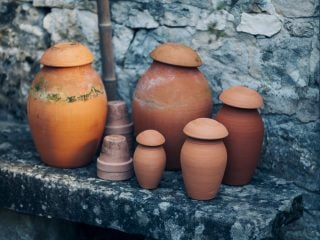Nuno Prates, a gardener who specialises in tropical plants, welcomes us to his Lisbon Gardener's Academy and his impressive tropical garden, both located in Lisbon's historic Chiado district. An inspirational conversation with a man who is passionate about sharing his knowledge with curious locals and visitors alike!

The world's smallest library can be found in Lisbon's Chiado district. Tucked away on the ground floor of a building, this little 7 m2 space has been home to an incredible collection of botanical books since 2022. Known as Lisbon Gardener's Academy, its founder Nuno Prates opens the doors of this quaint setting: “It used to be a small general bookshop run by a gentleman who terrified me when I was a child! When he died, I bought the place so that I could share my collection of botanical books with the city”.
The bookshelves that cover the walls from floor to ceiling contain a treasure trove of books, both old and new, in Portuguese, English and French. Historiographies of gardens and landscapes, manuals on gardening, horticulture, vegetable growing, botanical encyclopaedias, etc. “There is a bit of everything, but I'm trying to specialise in tropical botany”. In particular, there is a section dedicated to bromeliads – a family of plants that he is particularly fond of, the most widely known of which, and the only edible one, is the pineapple – as well as countless books dedicated to the different tropical biotopes around the world.
In a small arched room located on the mezzanine floor of the building, we discover his tropical herbarium: a collection of branches, fruits, leaves and seeds brought back from his travels or collected in his Lisbon gardens. It's a remarkable space, in the pure tradition of the 18th century cabinets of curiosities, where rare exotic and tropical plants brought back from botanical expeditions were catalogued and collected in order to gain a better understanding of natural history.

A self-taught gardener, keen traveller and collector of all things botanical, Nuno was born in Lisbon in 1967, in a country ruled by Salazar's dictatorial regime. As far back as he can remember, his passion for tropical plants dates back to childhood, when reading Tarzan opened his eyes to an exuberant world of giant trees, vines and oversized leaves. “Around the age of nine, my mother gave me catalogues of tropical plants from Brazil. I started learning their Latin scientific names and growing them indoors. And every Saturday morning, my father and I would go to the Estufa Fria greenhouses – the most tropical garden in Lisbon!”

At school, Nuno also learnt about his country's colonial empire: Madeira, the Azores, Cape Verde, Brazil, Goa in India, Mozambique and Angola. These overseas countries and territories were filled with tropical forests, which he would later explore. From one adventure to the next, Nuno returned to his home town with a growing desire to reproduce “tropical forest landscape scenarios”. His passion gradually became his profession.
“The city is an invitation to create natural scenarios”
A few streets from the Lisbon Gardener's Academy, Nuno invites us to visit his house and the garden he planted in 2009 on the foundations of a former printing works. From the top of the rua da Emenda, the first thing that strikes us is the gigantic mass of greenery that springs up from the front, where fig trees and bougainvillaea take root in the concrete of the pavement. “Originally from the coastal regions of Brazil, the bougainvillaea is a good example of a tropical plant that has successfully adapted to the Mediterranean climate.”
Through the front door, we enter a thick, open-air jungle planted with rare species from all corners of the world. “In a tropical rainforest, there isn't a single bare patch, there's life everywhere, and that's what I wanted to convey”. While the vegetation on the patio grows in the ground, the impressive canopy takes root in planters installed on the walkway, filtering out the UV rays that are most harmful to the companion plants below.

“What interests me is the cultural aspect of gardening, because exotic plants carry with them the history of their native environment, of thousands of years of adaptation, but also of the exploration of the New World from the beginning of the 15th century, which gave birth to the science of botany. It is this cultural heritage that I seek to preserve and pass on both through my gardens and through the Lisbon Gardener's Academy.”
While the gardens of Brazilian landscape gardener Burle Marx - a major figure in tropical landscaping - are an undeniable source of aesthetic inspiration, Nuno has developed an empirical knowledge of the tropical species capable of flourishing here in Portugal, without a greenhouse to protect them from the cold. “Lisbon benefits from a very favourable geographical position: 260 days of sunshine a year and the proximity of the Atlantic Ocean, which means that temperatures don't fall below 3 degrees celsius; tropical plants couldn't survive outdoors below that temperature”.
Nuno's garden is as much a lesson in tropical botany as it is an invitation to embrace this extraordinary plant heritage, too often relegated to the status of ‘house plants’ . It's a garden in all its emotional dimension, engaging the senses and reflecting the humanity of those who cultivate it. It's a wonderful demonstration of the greatness that can come from a city garden.

There aren’t any BACSAC® in this above-ground garden, apart from the one we gave Nuno to thank him for the long hours we spent talking together. But through this portrait, our whole raison d'être resonates: ‘The city is a garden, let's cultivate its every nook and cranny.’
To meet Nuno Prates and visit the Lisbon Gardener's Academy:



















